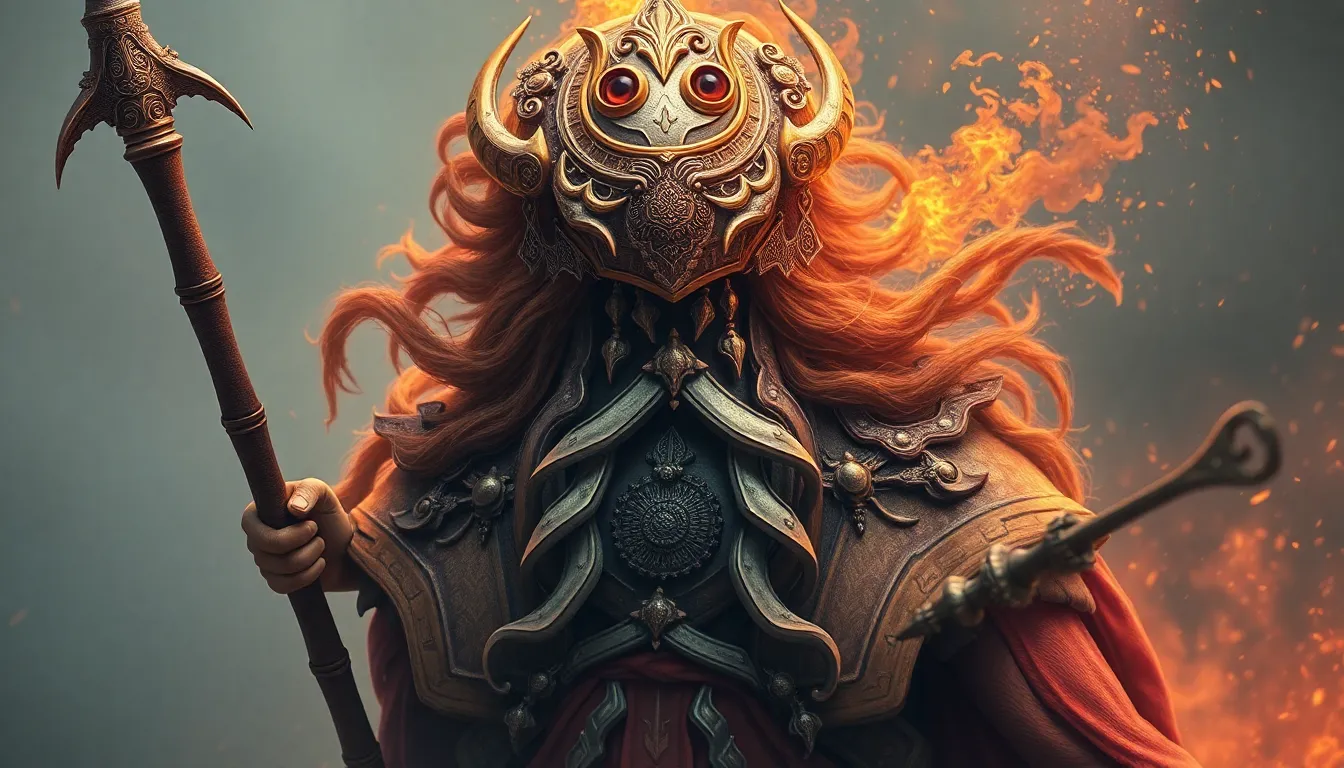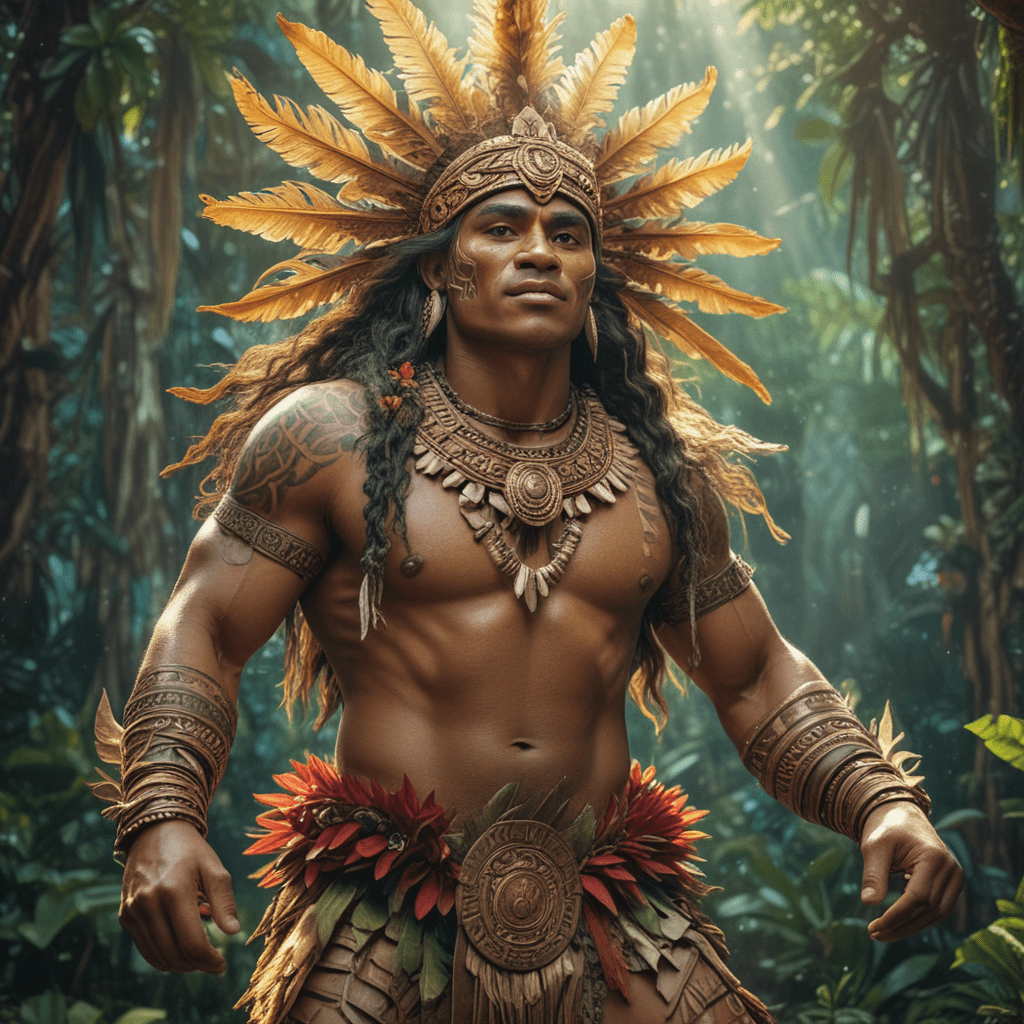The Fascinating Myths of Cultural Heroes Across Cultures
Introduction to Cultural Heroes
Cultural heroes are pivotal figures in the myths and stories that shape societies. They embody the values, struggles, and aspirations of their cultures, serving as symbols of what is deemed admirable or virtuous. These heroes often undertake journeys that reflect the collective experiences and challenges faced by their communities.
Their significance lies not only in their legendary feats but also in their roles as teachers and guides, offering moral lessons and cultural identity. By exploring the myths of cultural heroes across various societies, we gain insights into the universal themes of human experience, as well as the unique characteristics of different cultures.
The Common Traits of Cultural Heroes
Cultural heroes share several defining traits that make them relatable and admirable:
- Bravery: Heroes face daunting challenges and risks, often at great personal cost.
- Transformation: They undergo significant personal growth, evolving through their journeys.
- Leadership: Heroes inspire others and often lead their communities towards change.
- Morality: They embody virtues such as justice, loyalty, and sacrifice.
According to Joseph Campbell’s concept of the Hero’s Journey, heroes embark on a transformative quest that presents them with trials, allies, and ultimately, a confrontation with their greatest fears. These archetypes resonate deeply with societal values, reflecting the collective psyche and aspirations of the cultures they represent.
Cultural Heroes in Ancient Civilizations
In ancient civilizations, cultural heroes were often depicted in myths that explained natural phenomena, social order, and human existence. Notable examples include:
- Osiris: In ancient Egyptian mythology, Osiris was the god of the afterlife, symbolizing resurrection and eternal life. His story reflects themes of death, rebirth, and the moral order of society.
- Hercules: A hero of Greek mythology, Hercules is known for his incredible strength and for completing the Twelve Labors. His adventures underscore themes of perseverance, redemption, and the struggle against overwhelming odds.
- Gilgamesh: From Mesopotamian lore, Gilgamesh is a king who embarks on a quest for immortality. His journey highlights the human condition, friendship, and the acceptance of mortality.
The influence of these figures extends into contemporary culture, inspiring literature, art, and modern storytelling.
Indigenous Heroes and Their Stories
Indigenous cultures often showcase heroes who embody the values and beliefs of their people. These heroes are integral to the oral traditions that preserve their histories and teachings. Examples include:
- Coyote: A trickster figure in many Native American myths, Coyote represents both wisdom and folly, teaching lessons through his misadventures.
- Tiddalik: From Aboriginal Australian mythology, Tiddalik the frog drank all the water, showing the importance of balance in nature and community.
- Nyame: In African tribal myths, Nyame is the sky god, representing the interconnectedness of life and the importance of respect for nature.
Through these stories, oral tradition plays a crucial role in maintaining cultural identity and passing on values from generation to generation.
Eastern Cultural Heroes: Legends and Beliefs
Eastern mythologies are rich with heroes whose stories impart profound moral and philosophical lessons. Notable figures include:
- Sun Wukong: The Monkey King from Chinese mythology, known for his strength, agility, and cleverness. His journey in “Journey to the West” embodies the struggle for enlightenment.
- Rama: The hero of the Ramayana in Hinduism, Rama represents dharma (righteousness) and the ideal qualities of a king, husband, and warrior.
These heroes convey messages about duty, ethical conduct, and the importance of maintaining harmony within society.
Modern Adaptations of Cultural Heroes
In contemporary times, ancient myths have been reinterpreted through literature, film, and pop culture. Modern cultural heroes often draw inspiration from these ancient figures. For instance:
- Marvel Superheroes: Characters like Spider-Man and Captain America embody traits of traditional heroes, such as bravery and responsibility, while addressing modern societal issues.
- Literary Adaptations: Works such as “The Odyssey” have seen numerous adaptations, showcasing the enduring appeal of heroic narratives.
These modern interpretations allow for a re-examination of identity and values, demonstrating how cultural heroes continue to shape societal norms.
The Role of Cultural Heroes in Social Movements
Cultural heroes also play a vital role in inspiring social change. Figures such as:
- Nelson Mandela: His struggle against apartheid and commitment to reconciliation transformed him into a global symbol of justice and resilience.
- Malala Yousafzai: As an advocate for girls’ education, Malala’s courage in the face of adversity exemplifies modern heroism.
The intersection of myth and reality in these narratives serves to galvanize movements for social justice, illustrating how cultural heroes can inspire new generations to strive for change.
Comparative Analysis: Heroes Across Cultures
When examining hero myths from various cultures, similarities and differences emerge. The concept of the “universal hero” is often contrasted with culturally specific heroes. Key points of comparison include:
- Universal Themes: Many hero myths address common human experiences such as loss, love, and the quest for identity.
- Cultural Specificity: Heroes often possess traits that resonate specifically with the values and beliefs of their respective cultures.
This comparative analysis provides insights into human behavior and societal development, highlighting the shared narratives that connect us across cultures.
Lessons from Cultural Heroes: Moral and Ethical Implications
Cultural hero myths offer rich teachings and values that resonate with contemporary audiences. The lessons derived from these narratives often include:
- Resilience: The ability to overcome obstacles and persevere in the face of adversity.
- Empathy: Understanding and valuing the experiences of others.
- Responsibility: The importance of acting in accordance with one’s duties to family and society.
These timeless values remain relevant in addressing current global issues, providing guidance on how to navigate the complexities of modern life.
Conclusion: The Enduring Legacy of Cultural Heroes
The legacy of cultural heroes endures through the ages, continually shaping our understanding of identity, morality, and community. As we explore the myths surrounding these figures, we uncover the rich tapestry of human experience that binds us together across time and space. Cultural heroes remind us of our shared struggles and triumphs, offering a source of inspiration and guidance in our journeys through life.




